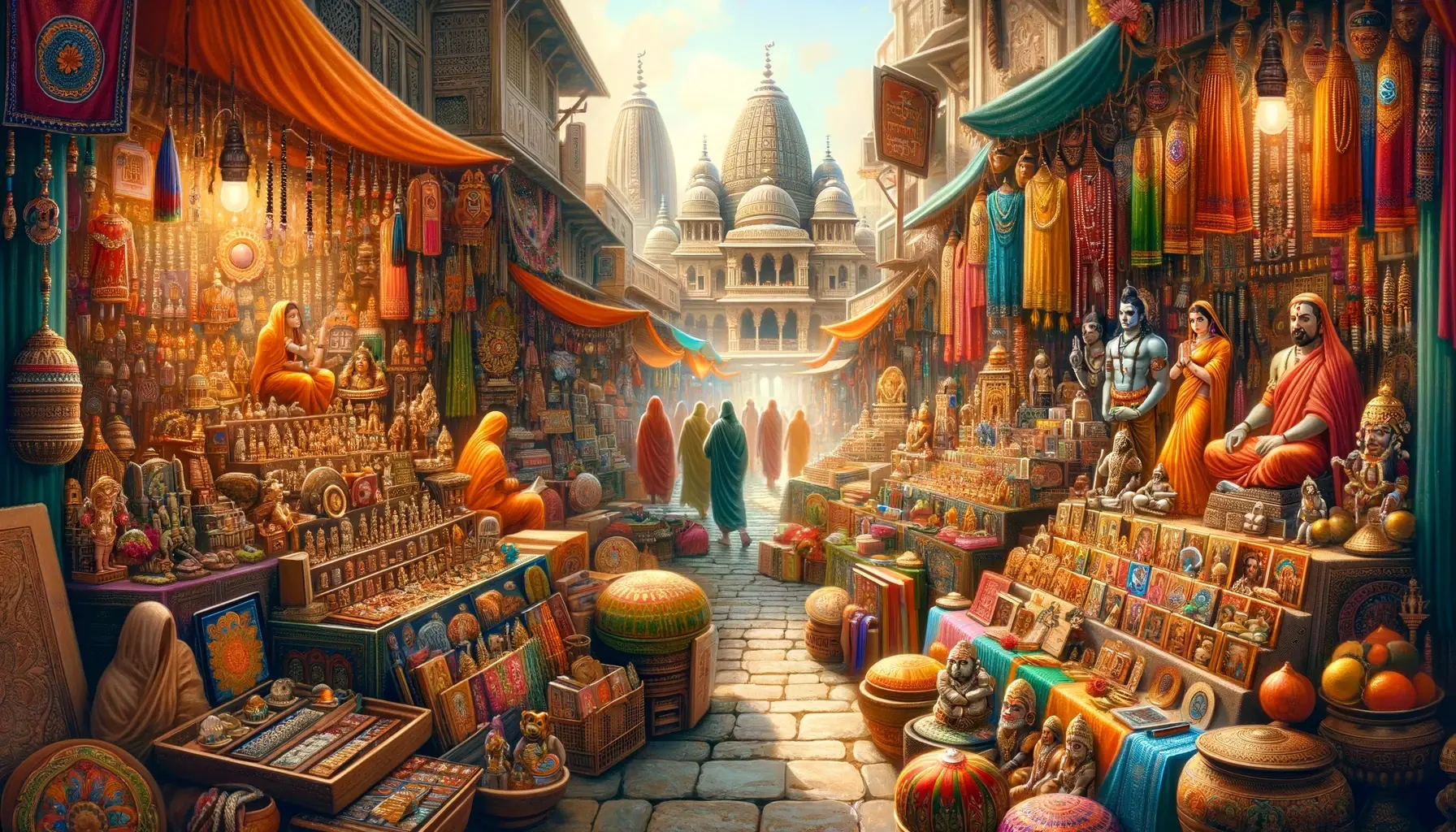Table of Contents
- Introduction to Handcrafted Goods in Ayodhya
- Notable Artisan Markets
- Popular Handcrafted Items
- Recognizing Authentic Handicrafts
- Workshops and Artisan Interaction
- Pricing and Bargaining
- Export and Custom Orders
- FAQs on Buying Handcrafted Goods in Ayodhya
1. Introduction to Handcrafted Goods in Ayodhya
Ayodhya, a city steeped in mythological and historical significance, is also a center for exquisite handcrafted goods. Known for its skilled artisans, the city offers a wide range of authentic artifacts that reflect its rich cultural legacy. From intricately carved idols to exquisite pottery, Ayodhya’s markets are a haven for those looking to purchase genuine handcrafted items.
- Ayodhya is known for its skilled artisans and authentic artifacts.
- The city offers a wide range of handcrafted goods reflecting its cultural
legacy.
2. Notable Artisan Markets
The city’s main artisan markets, such as ‘Saryu Artisan Market’ and ‘Ram Ki Paidi Craft Bazaar’, provide a platform for local artisans to showcase their work. These markets are not only shopping destinations but also cultural hubs where the vibrancy and diversity of Ayodhya’s crafts are on full display.
- ‘Saryu Artisan Market’ and ‘Ram Ki Paidi Craft Bazaar’ are key shopping hubs for handcrafted goods.
- These markets are cultural hubs representing the diversity of local crafts.
3. Popular Handcrafted Items
Visitors can find a variety of handcrafted goods including terracotta pottery, wooden toys, handwoven textiles, and traditional jewelry. Each artifact tells a story of Ayodhya’s artistic traditions and the meticulous craftsmanship that goes into making them.
- Terracotta pottery, wooden toys, handwoven textiles, and traditional jewelry are popular items.
- Artifacts represent Ayodhya’s artistic traditions and craftsmanship.
4. Recognizing Authentic Handicrafts
To ensure authenticity, buyers should look for the ‘Craftmark’ or ‘Handloom Mark’ certifications. These marks guarantee that the products are genuinely handcrafted using traditional methods. Many shops also provide detailed information about the craft’s origin and the artisan’s profile.
- Look for ‘Craftmark’ or ‘Handloom Mark’ certifications for authenticity.
- Shops often provide background information on the crafts and artisans.
5. Workshops and Artisan Interaction
Some artisan shops in Ayodhya offer workshops or live demonstrations, allowing visitors to observe the creation process. Interaction with artisans not only enriches the shopping experience but also gives insights into the tradition and skill involved in the craft.
- Workshops and live demonstrations are available in some shops.
- Interaction with artisans offers insight into their traditions and skills.
6. Pricing and Bargaining
Prices for handcrafted goods in Ayodhya can vary widely. While bargaining is accepted, it should be done with respect for the artisan’s
skill and effort. Understanding the time and artistry involved in creating these items can help in appreciating their value and negotiating a fair price.
- Bargaining is a common practice but should be respectful of the artisans’ work.
- Understanding the craftsmanship can assist in appreciating the value of items.
7. Export and Custom Orders
For those looking to take Ayodhya’s handcrafted goods beyond Indian borders, many shops offer export services. Additionally, custom orders are welcomed by artisans who are willing to create personalized items that cater to individual preferences and styles.
- Many shops provide export services for international buyers.
- Custom orders are available for personalized handcrafted items.
8. FAQs on Buying Handcrafted Goods in Ayodhya
- What is the best time to visit Ayodhya for handcrafted goods?
- While the markets are open year-round, visiting during festival seasons may offer a wider variety.
- How do I know if a handcrafted item is authentic?
- Authentic items often come with certifications like ‘Craftmark’ and may include artisan signatures.
- Can I place bulk orders for handcrafted items in Ayodhya?
- Yes, many artisans and shops can accommodate bulk orders with advance notice.
- Are there language barriers when communicating with local artisans?
- English is commonly spoken, but knowing some basic Hindi phrases can enhance the interaction.
- Can I see the making of handcrafted items in Ayodhya?
- Yes, some workshops and shops offer live demonstrations.
- Is it possible to have handcrafted items shipped to my home country?
- Many shops offer shipping services, though it’s advisable to discuss logistics and costs upfront.
- What payment methods are accepted in Ayodhya’s artisan markets?
- Cash is widely accepted, and some shops may accept credit cards or digital payments.
- Are prices for handcrafted goods fixed, or is haggling acceptable?
- Prices can be negotiated, but it should be done respectfully and considering the artisan’s labor.
In Ayodhya, the purchase of handcrafted goods is more than a transaction; it’s a celebration of the city’s cultural heritage and support for local artistry. Visitors leave not just with a product but with a piece of Ayodhya’s soul, encapsulated in the timeless beauty of its artisanal crafts.


